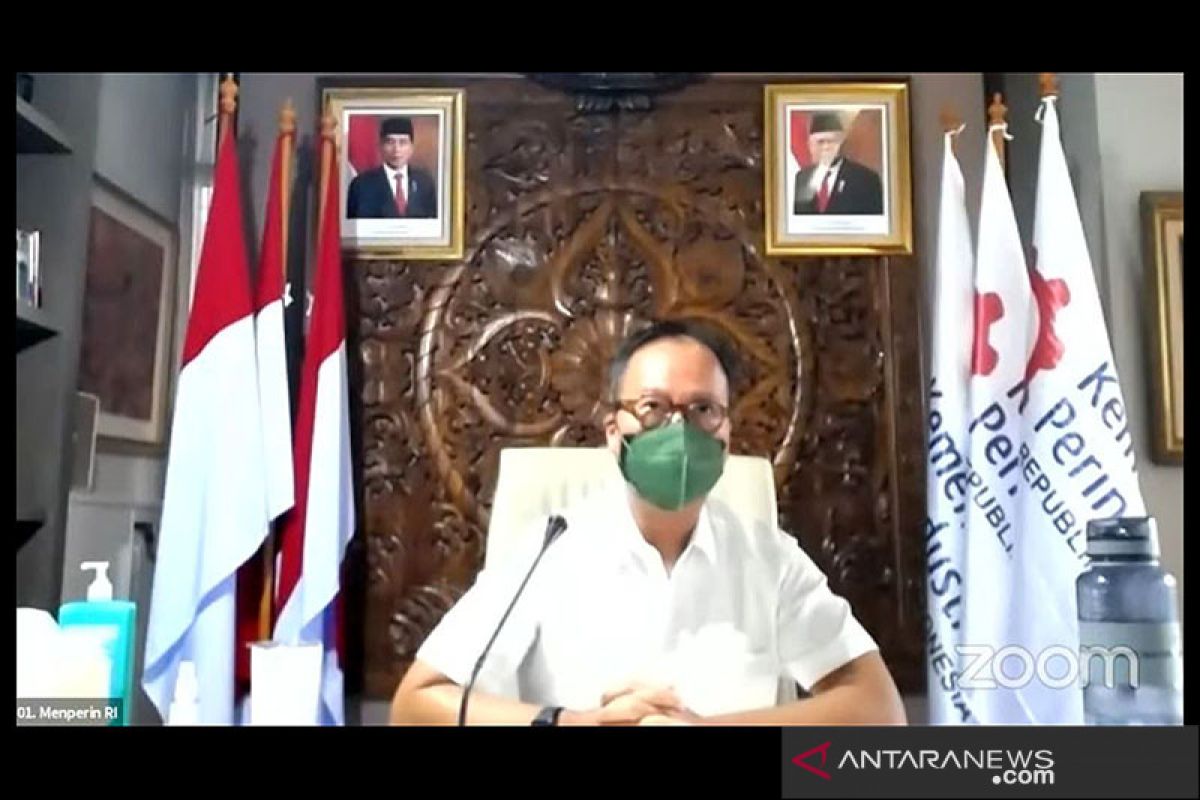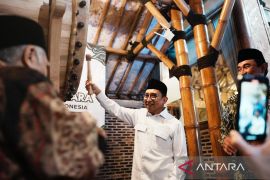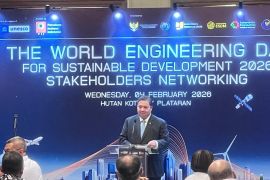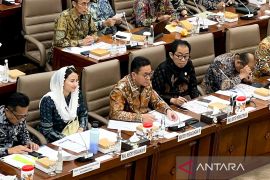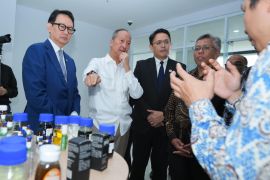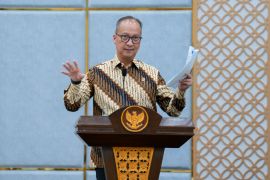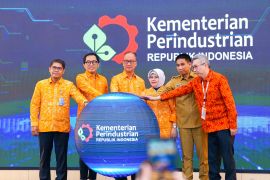The attempt also aims to attract investment to the industrial sector.Jakarta (ANTARA) - The national industry must adapt to global dynamics and trends to ensure competitiveness and growth, Industry Minister Agus Gumiwang Kartasasmita has said.
"Currently, there are several world industrial trends -- change of technology, demand for green industry, and growth of the halal industry," he remarked here on Tuesday at the commemoration of Indonesia's 76th Independence Day.
Future technology trends would be dominated by information and communication technology, the Internet of things (IoT), wearable devices, automation and robotics, as well as artificial intelligence, he noted.
Therefore, the government is accelerating the implementation of its Making Indonesia 4.0 policy to encourage the revitalization of the manufacturing sector to make it more efficient and productive, he said.
"The attempt also aims to attract investment to the industrial sector," he added.
The policy is expected to encourage real gross domestic product (GDP) growth of 2 percent per year, increase the industry’s contribution to the GDP by 25 percent by 2030, as well as raise the number of employed from 20 million to 30 million by 2030, he informed.
Related news: Indonesia seeks to substitute 35% of imported products by 2022
There are seven main focus industries of the program -- food and beverages, textiles and clothing, automotive, chemical, electronics, pharmaceutical, and medical devices, he said.
All the sectors are targeted to contribute 70 percent to the total industrial GDP, 65 percent to manufacturing exports, and 60 percent to workers' absorption, he added.
Meanwhile, another global industrial trend is the development of the green industry as part of the Sustainable Development Goals agenda, the minister noted.
Hence, the government has set seven aspects of the green industry standards – materials, energy and water utilization, greenhouse gas emissions, production processes, finished products, waste disposal, and business management, he added.
Green industry implementation in 2019 managed to reduce 39.22 million tons of CO2 equivalent as well as achieve energy and water savings worth Rp3.5 trillion and Rp230 billion, respectively, he added.
"Currently, 895 industrial companies have received the green industry awards," he added.
Related news: Deindustrialization cue for manufacturing industry to grow: minister
Furthermore, the Indonesian industry should also prepare for another global trend, which is the growth of the halal industry, Kartasasmita said. Its market potential was Rp2 trillion in 2017, he noted, adding that it is predicted to rise to Rp3 trillion by 2023.
He said he was concerned that Indonesia, as the world’s largest Muslim country, has not played a major role in the sector. He urged national industries to develop halal food and beverages, halal medicinal products, halal cosmetic products, and halal fashion products
To optimize this role, the government has asked national industrial actors to develop integrated halal industrial areas comprising halal laboratory facilities, halal inspection offices, halal water treatment installations, and halal assurance systems, he informed.
“We will supervise the development in collaboration with the Halal Product Assurance Agency (BPJPH) and Indonesian Council of Ulemas (MUI) to conduct halal verification," he added.
Related news: Pertamina finds oil, gas deposits in Seribu islands
Related news: BI submits 2022 budget plan to House of Representatives
Translator: Sella Gareta, Uyu Liman
Editor: Fardah Assegaf
Copyright © ANTARA 2021
